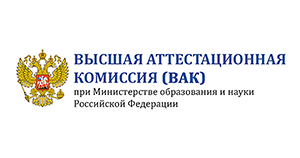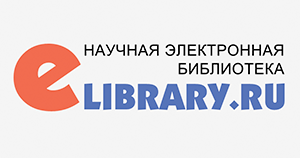|
Перейти
на сайт журнала "Врач" |
Перейти на сайт журнала "Медицинская сестра"
|
Перейти на сайт журнала "Фармация"
|
Перейти на сайт журнала "Молекулярная медицина"
|
Перейти на сайт журнала "Вопросы биологической, медицинской и фармацевтической химии"
|
Журнал включен в российские и международные библиотечные и реферативные базы данных
|
ВАК (Россия)
|
РИНЦ (Россия)
|
Эко-Вектор (Россия)
|
THE ANTITUMOR ACTIVITY OF DENDRITIC CELLS MATURED IN THE PRESENCE OF TOLL-LIKE RECEPTOR’S LIGANDS AND INTERFERONS
DOI: https://doi.org/10.29296/25877313-2018-10-01
Issue:
10
Year:
2018
The ability of dendritic cells (DCs) to induce tumor-specific T-cells has been used in immunotherapy of a cancer more than 20 years, but the clinical efficacy of the DCs remains limited. Crucial importance in obtaining mature cells belongs to the composition and the concentration of the components of the cocktail for maturation, which in the `standard` version includes a combination of cytokines: TNFα, IL-6, IL-1β и PGE2. However, in this environment DCs do not actively produce IL-12p70 that sharply reduces their polarizing potential towards the Th1 immune response. The key role in this negative effect plays PGE2. In this research, has been created a new maturation cocktail based on Toll-like receptor agonists that induce the maturation of DCs capable of in-ducing a Th1 response. A comparative analysis was also conducted with DCs obtained by the “standard protocol” in terms of: proliferative response of T-cells in the mixed culture of lymphocytes, secretion of IL-12p70 and IL-10 by DCs, the expression profile of costimulatory molecules of DCs and the chem-otaxis of naïve T-cells in vitro. The cytokine cocktail, including interferons and TLR ligands, provides a mature phenotype of DC, a prevalence of costimulatory molecules over coinhibitor, active migration and proliferation of T cells, and high secretion of IL-12p70 in response to CD40L stimulation. In the mixed culture of lympho-cytes, these signals shift the polarization of the immune response towards IFNγ-secreting Th1 cells with suppression of concomitant activation of regulatory T cells. This maturation protocol, in contrast to standard DC vaccines, allows obtaining a culture of αDC1, the cells of which combine all the necessary, even contradictory, properties of antitumor vaccines.
Keywords:
dendritic cells
antitumor vaccines
Th1- cell
migration
IL-12
CCR7
TLR ligands
References:
- Nazarkina Zh.K., Laktionov P.P. Poluchenie dendritnyh kletok dlja immunoterapii rakovyh zabolevanij // Biomeditsinskaja himija. 2015. T. 61. Vyp. 1. S. 30-40 (Nazarkina ZH.K., Laktionov P.P. Poluchenie dendritnyh kletok dlya immu-noterapii rakovyh zabolevanij // Bio-medicinskaya himiya. 2015. T. 61. Vyp. 1. S. 30-40 (In Russian)).
- Eksioglu E.A., Eisen S., Reddy V. Dendritic cells as therapeutic agents against cancer // Front Biosci. 2010. № 15. R. 321–347.
- Apetoh L. et al. Harnessing dendritic cells in cancer // Semin. Immunol. 2011. № 23. R. 42–49.
- Dauer M. et al. Mature dendritic cells derived from human monocytes within 48 hours: a novel strategy for dendritic cell differentiation from blood precursors // J. Immunol. 2003.
- № 170. R. 4069-4076.
- Skalova K., Mollova K., Michalek J. Human myeloid dendritic cells for cancer therapy: does maturation matter? // Vaccine. 2010. № 28. R. 5153–5160.
- Lichtenegger F.S. et al. CD86 and IL-12p70 Are Key Players for T Helper 1 Polarization and Natural Killer Cell Activation by Toll-Like Receptor-Induced Dendritic Cells // PLOS ONE. 2012. V. 7. Iss. 9. R. 1-9. e44266.
- Hansen M. et al. Comparison of clinical grade type 1 polarized and standard matured dendritic cells for cancer immunotherapy // Vaccine. 2013. V. 31. № 4. R. 639-646.
- Wang Y. et al. The regulation and activity of interleukin-12 // Front. Biosci. (Schol. Ed.). 2012. № 4. R. 888-899.
- Chung D.J. et al. Indoleamine 2,3-dioxygenase-expressing mature human monocyte-derived dendritic cells expand potent autologous regulatory T cells // Blood. 2009. № 114.
- R. 555–563.
- Vignali D.A., Collison L.W., Workman C.J. How regulatory
- T cells work // Nat. Rev. Immunol. 2008. № 8. R. 523–532.
- Napolitani G. et al. Selected Toll-like receptor agonist combinations synergistically trigger a T helper type 1-polarizing program in dendritic cells // Nat. Immunol. 2005. № 6.
- R. 769–776.
- Boullart A.C. et al. Maturation of monocyte-derived dendritic cells with Toll-like receptor 3 and 7/8 ligands combined with prostaglandin E2 results in high interleukin-12 production and cell migration // Cancer Immunol. Immunother. 2008.
- № 57. R. 1589–1597.
- Boullart A.C. et al. Maturation of monocyte-derived dendritic cells with Toll-like receptor 3 and 7/8 ligands combined with prostaglandin E2 results in high interleukin-12 production and cell migration // Cancer Immunol. Immunother. 2008.
- № 57. R. 1589–1597.
- Upchurcha K.C. et al. New TLR7 agonists with improved humoral and cellular immuneresponses // Immun. Letters. 2015. № 168. R. 89–97.
- Spranger S. et al. Generation of Th1-Polarizing Dendritic Cells Using the TLR7/8 Agonist CL075 // J. Immunol. 2010. № 185. R. 738–747.
- Dohnal A.M. et al. Phase I study of tumor Ag-loaded IL-12 secreting semi-mature DC for the treatment of pediatric cancer // Cytotherapy. 2007. № 9. R. 755–770.








